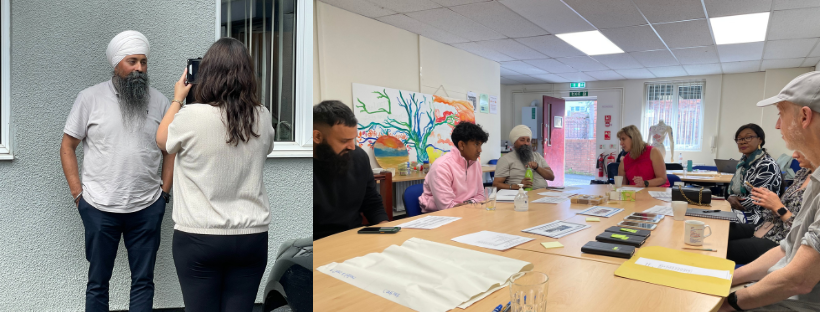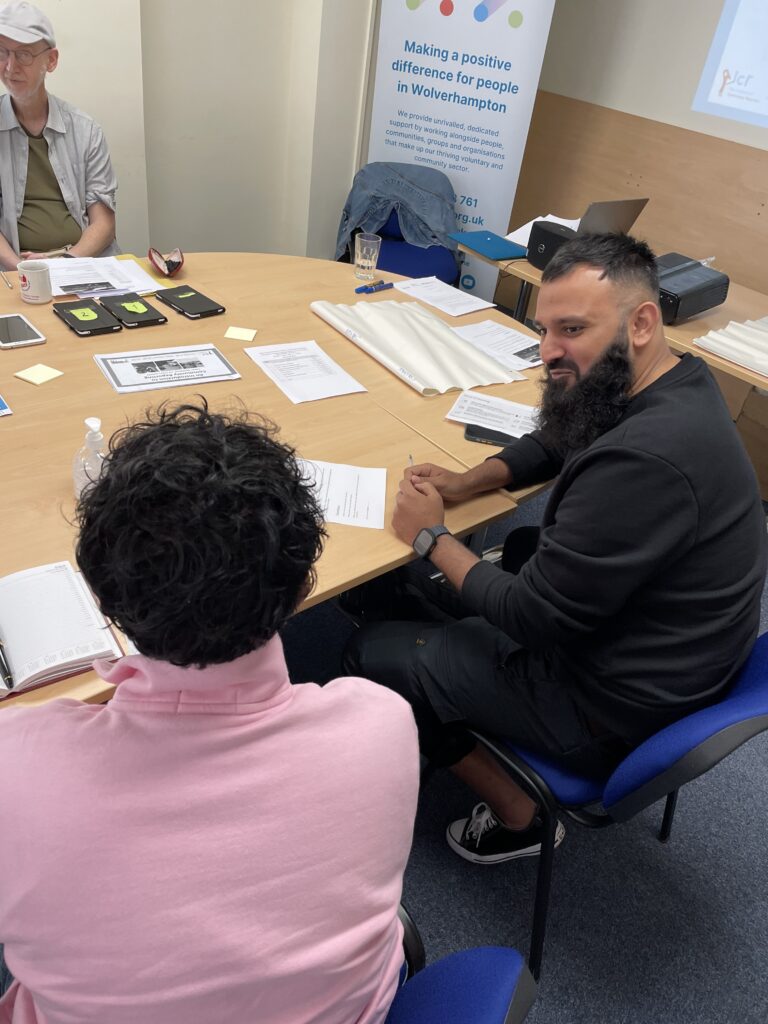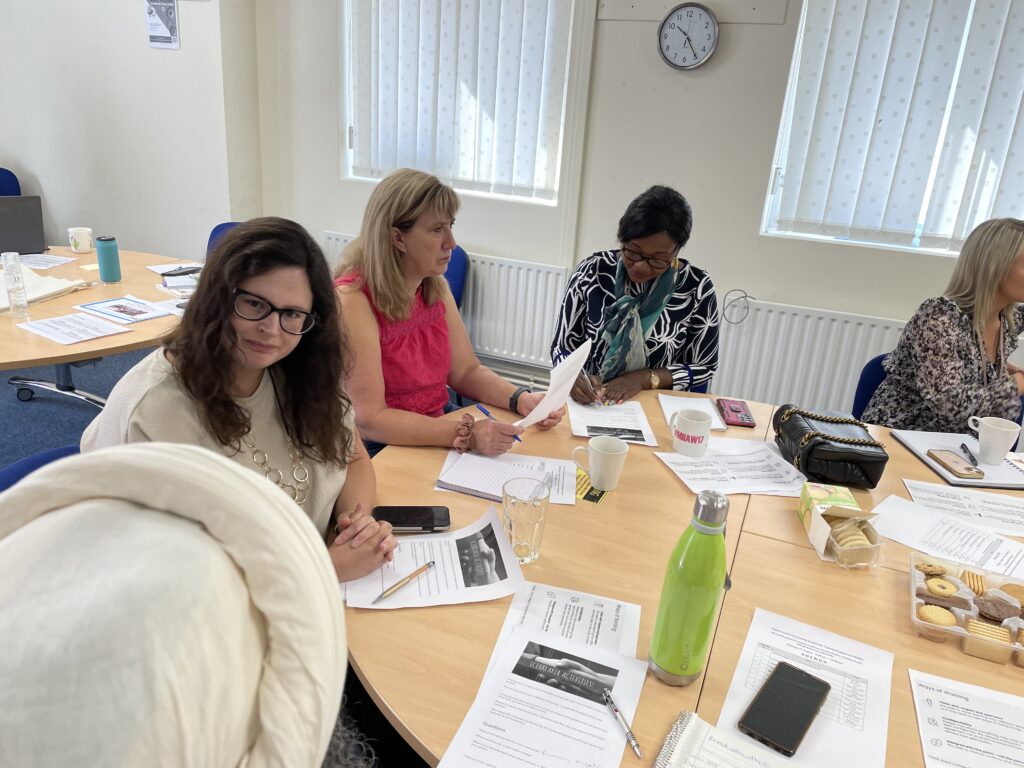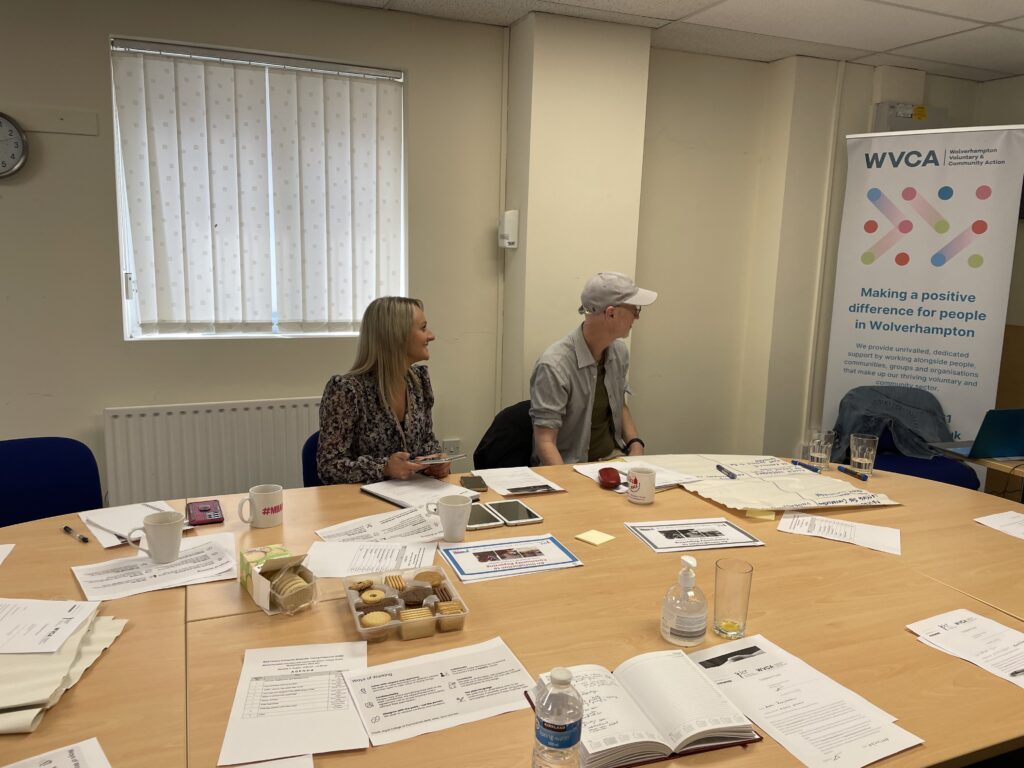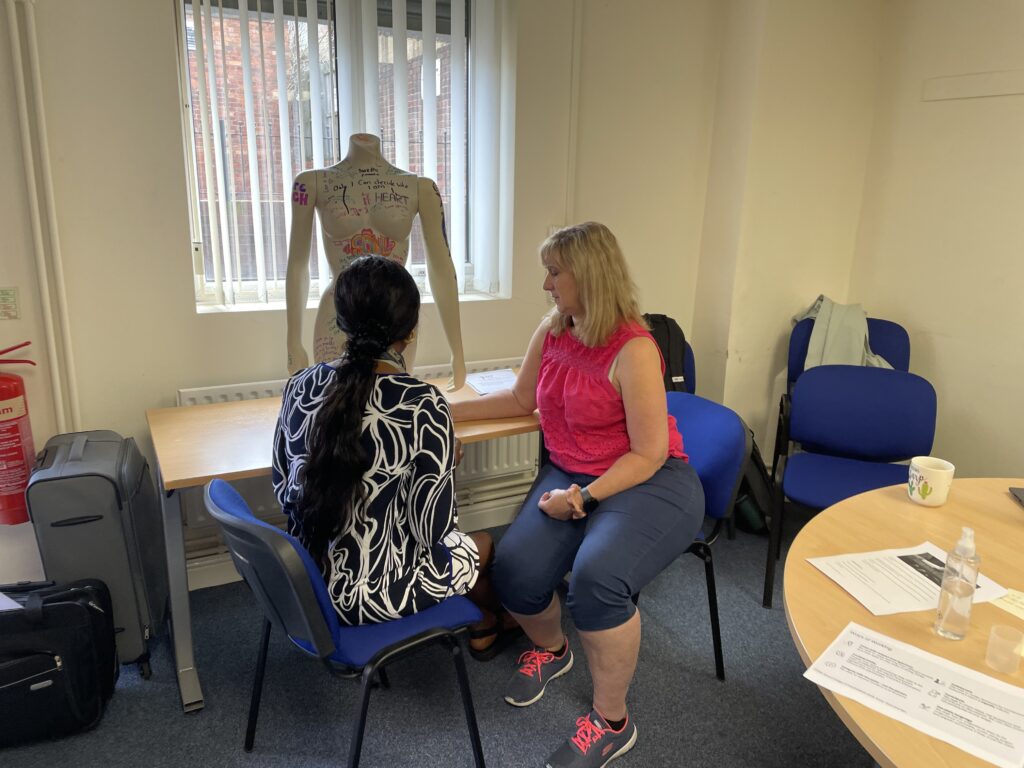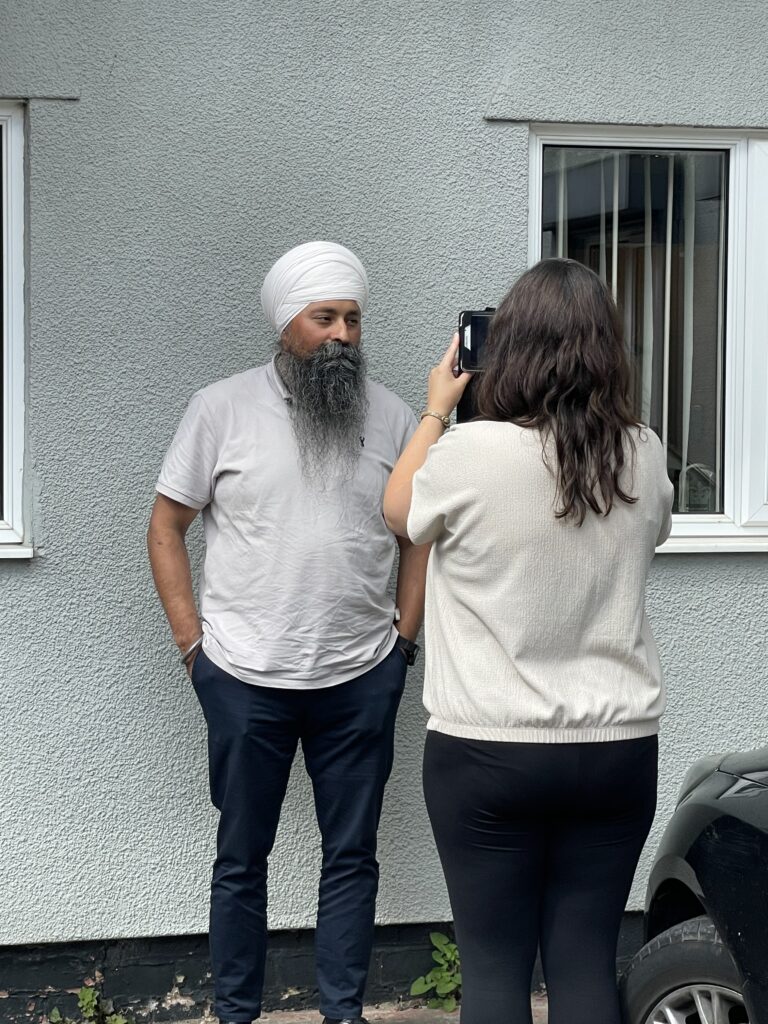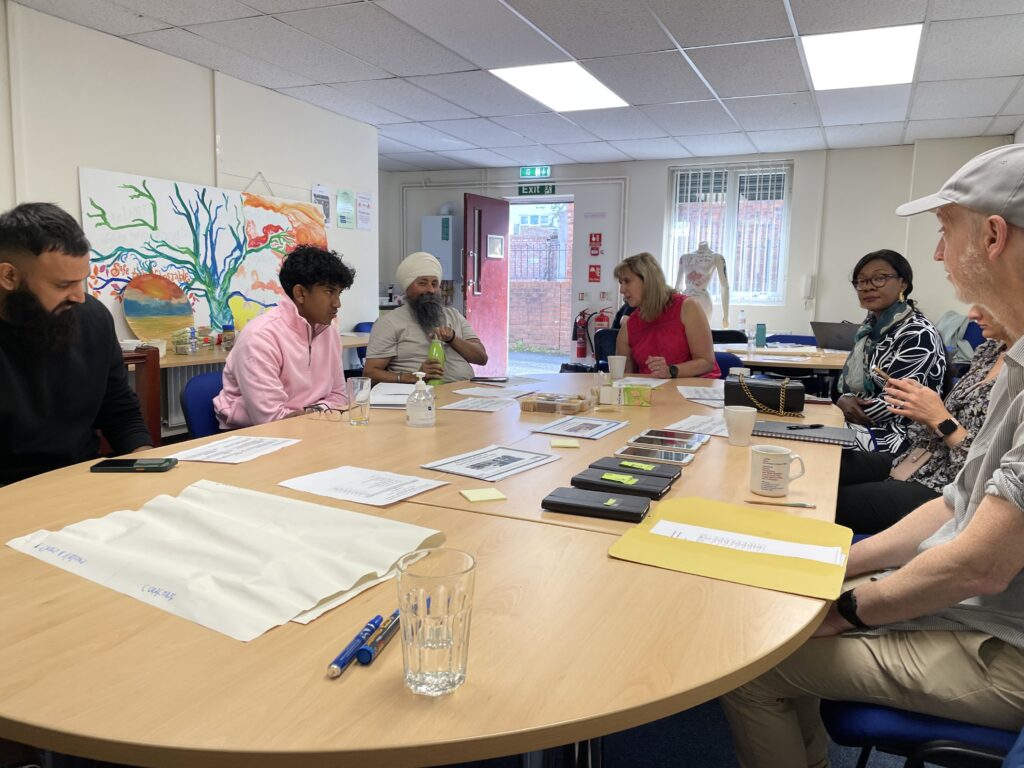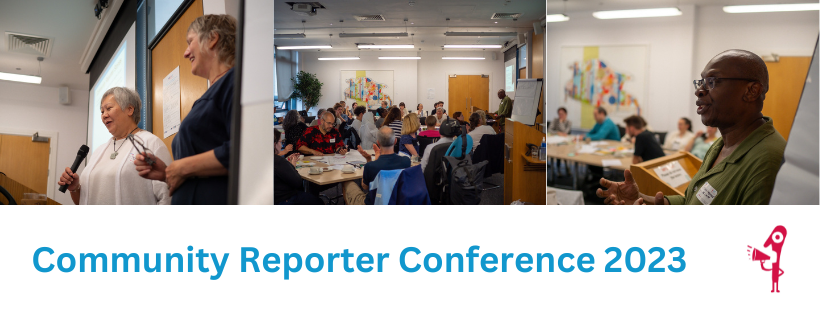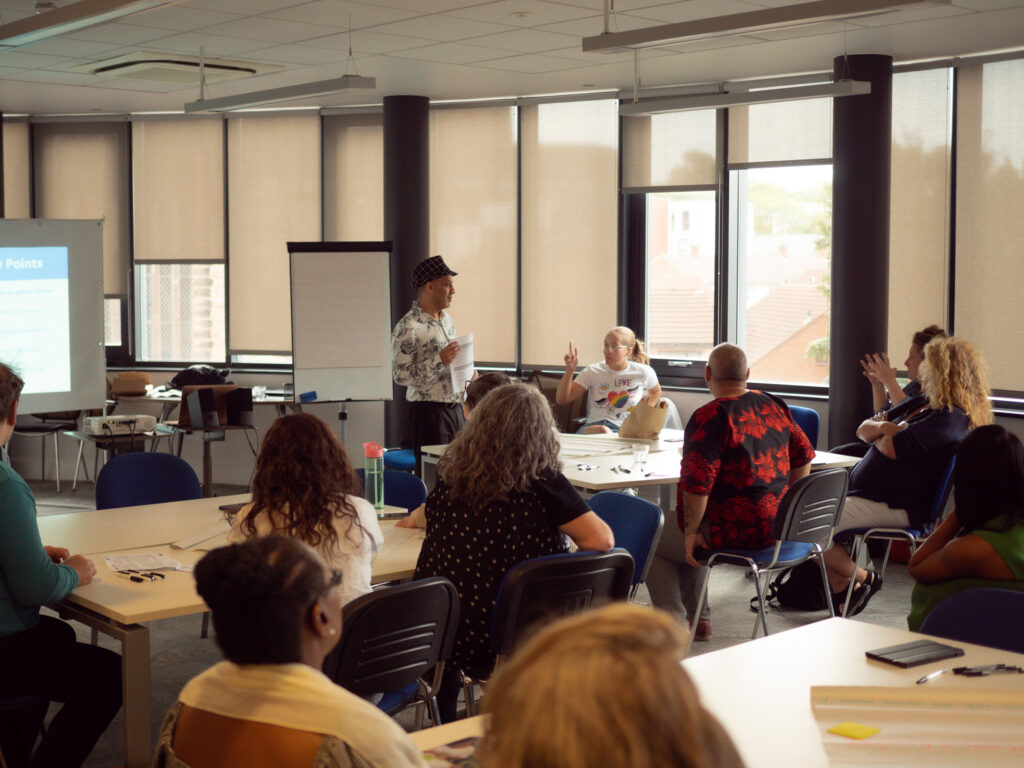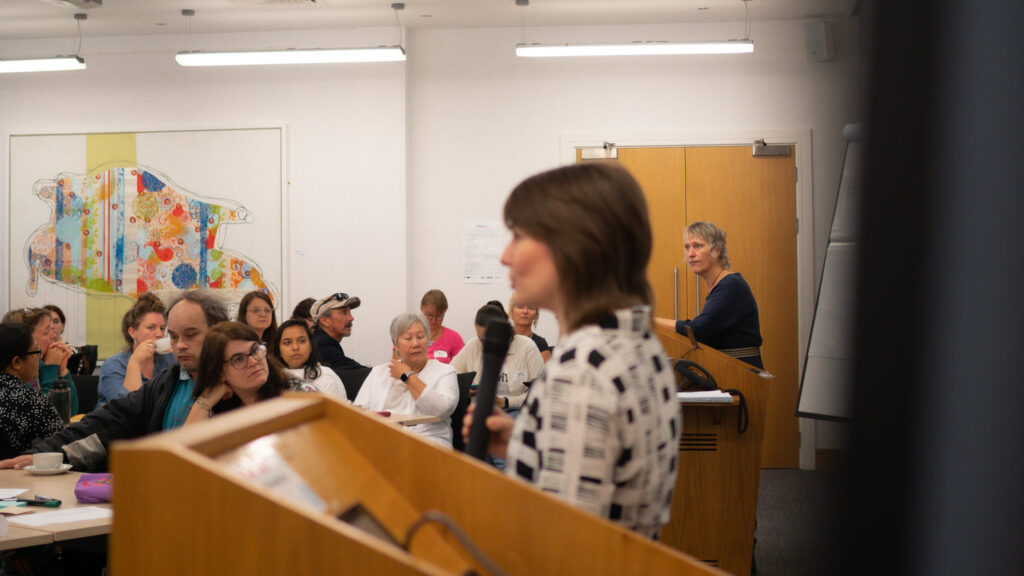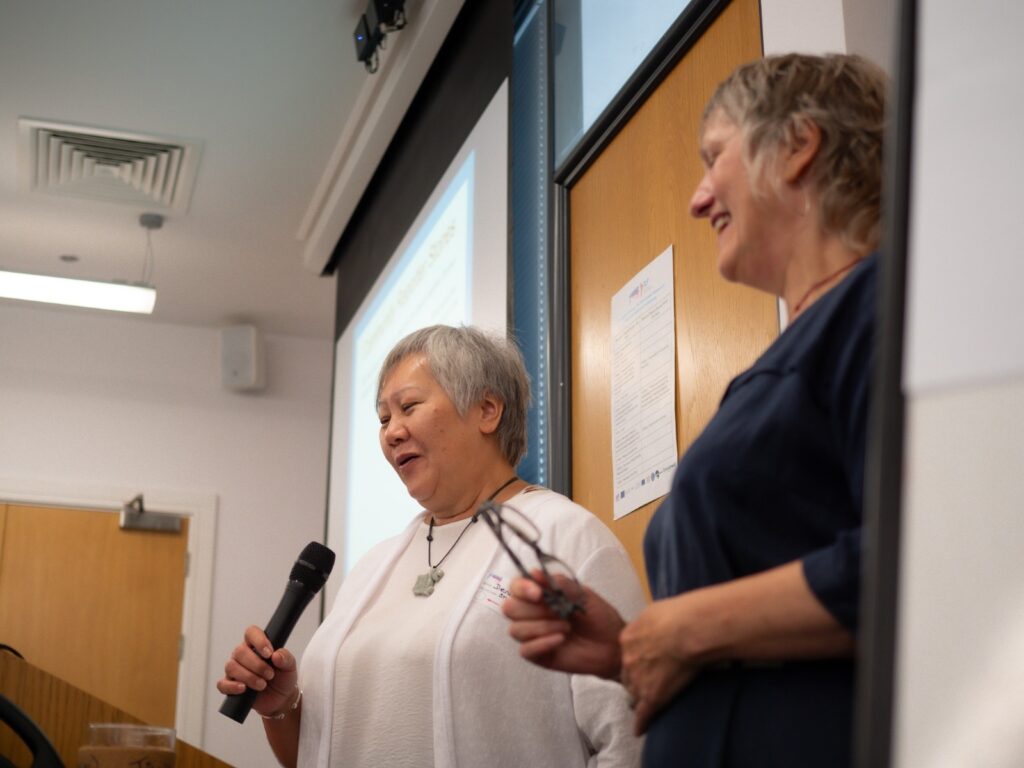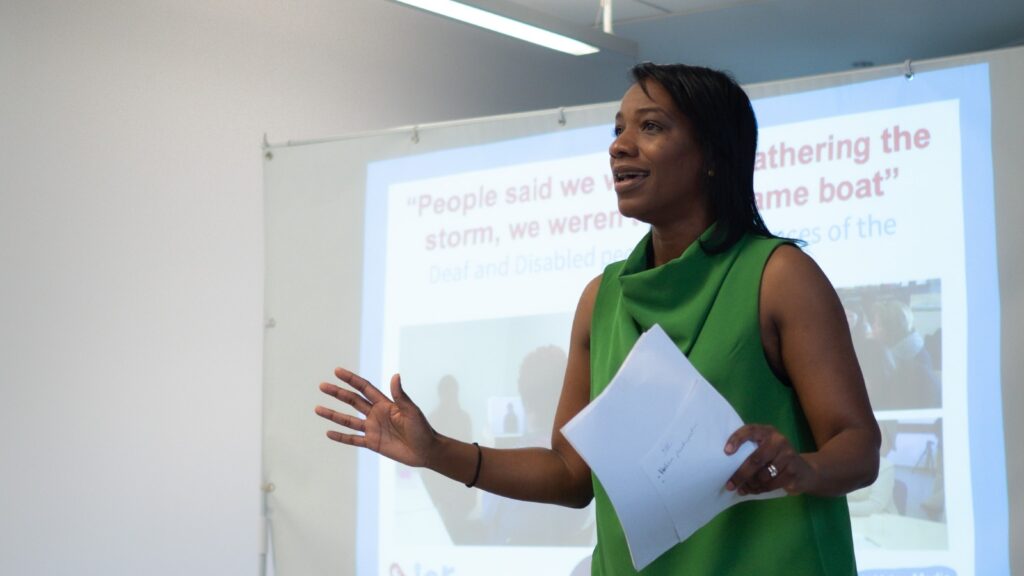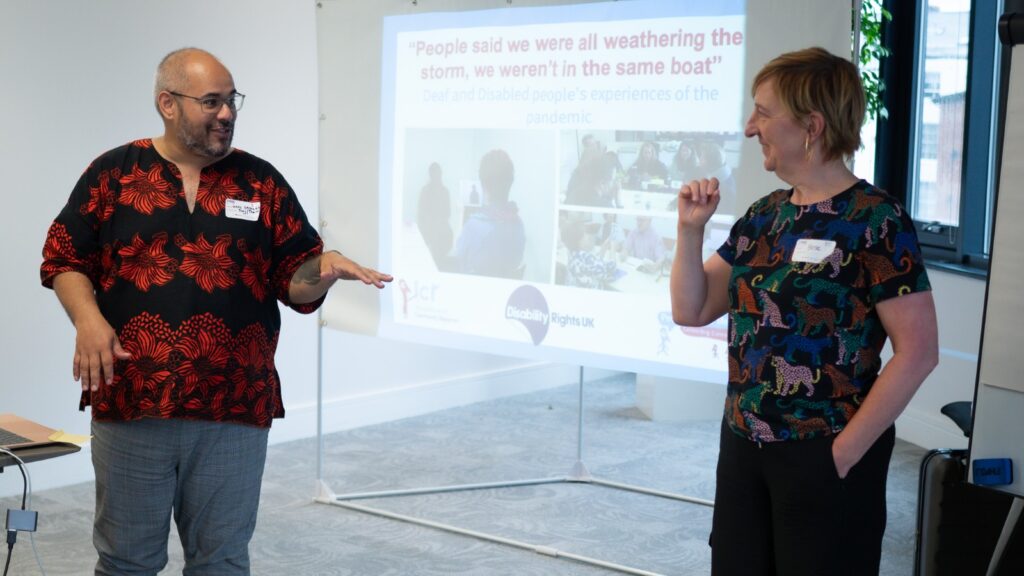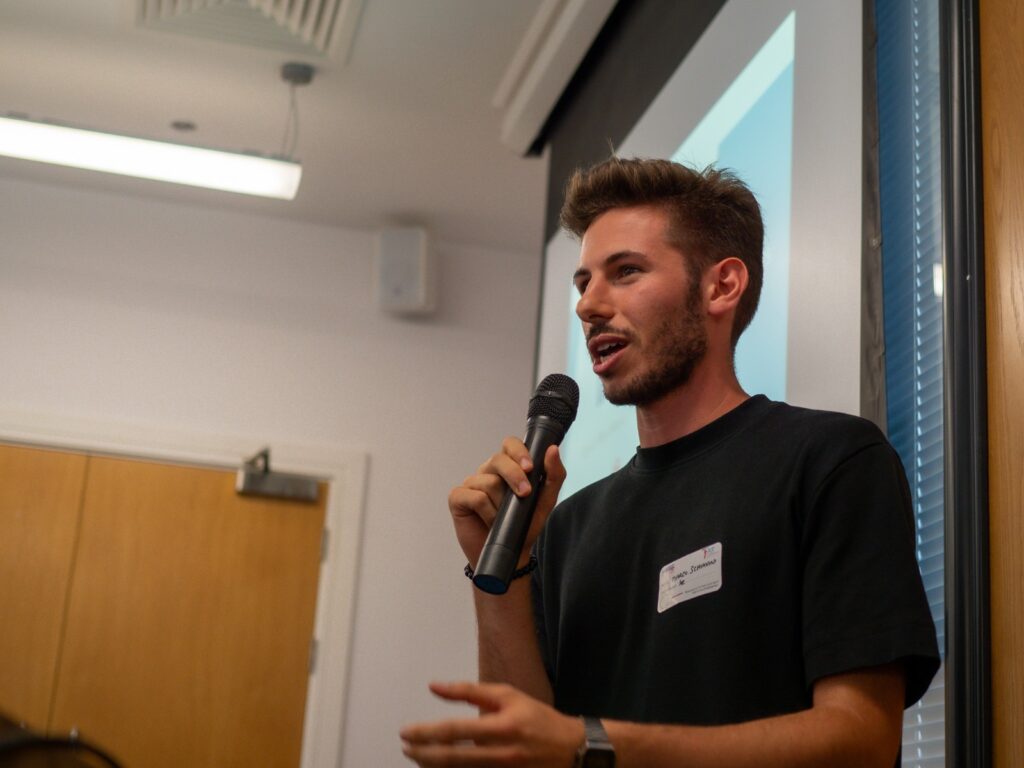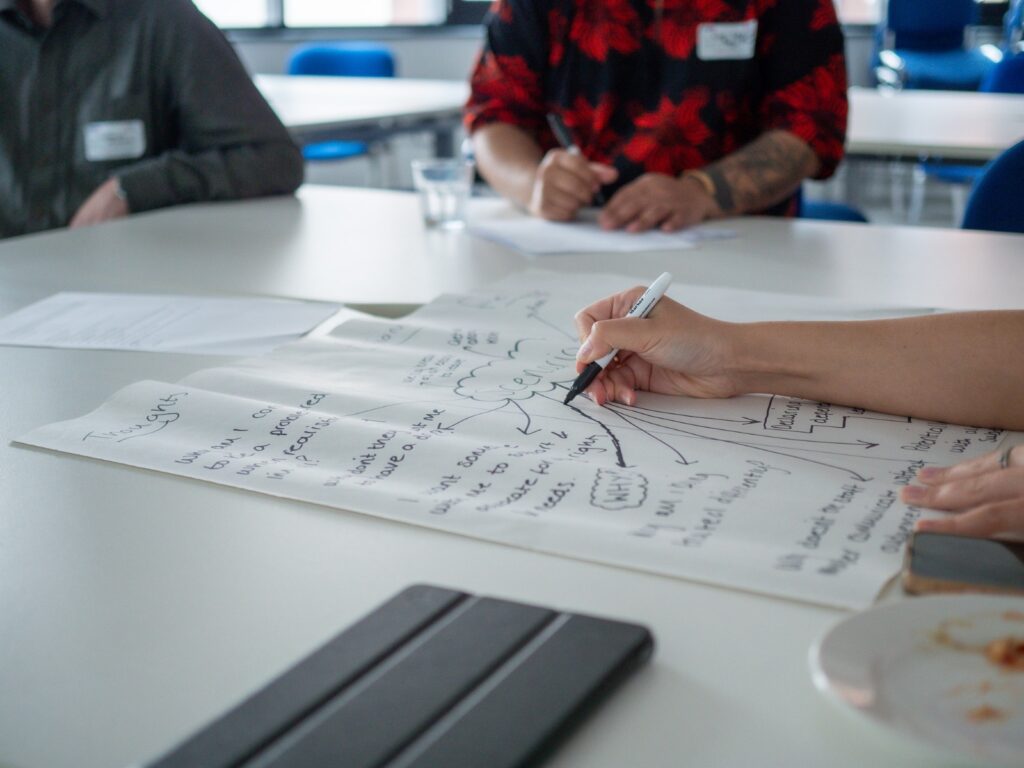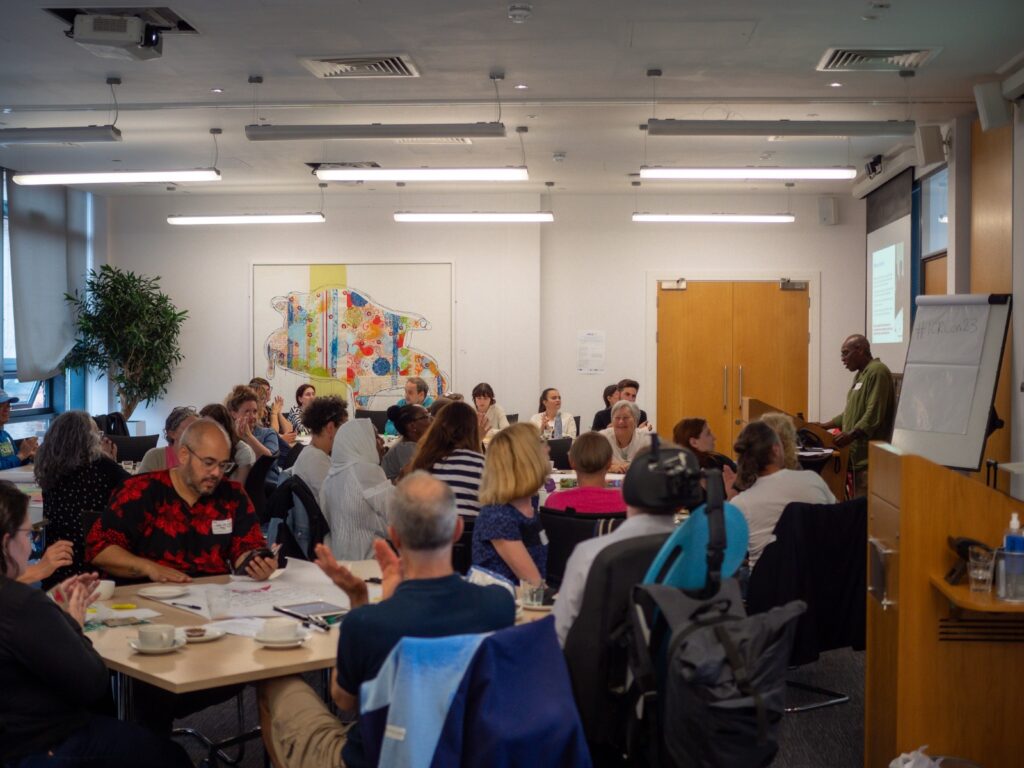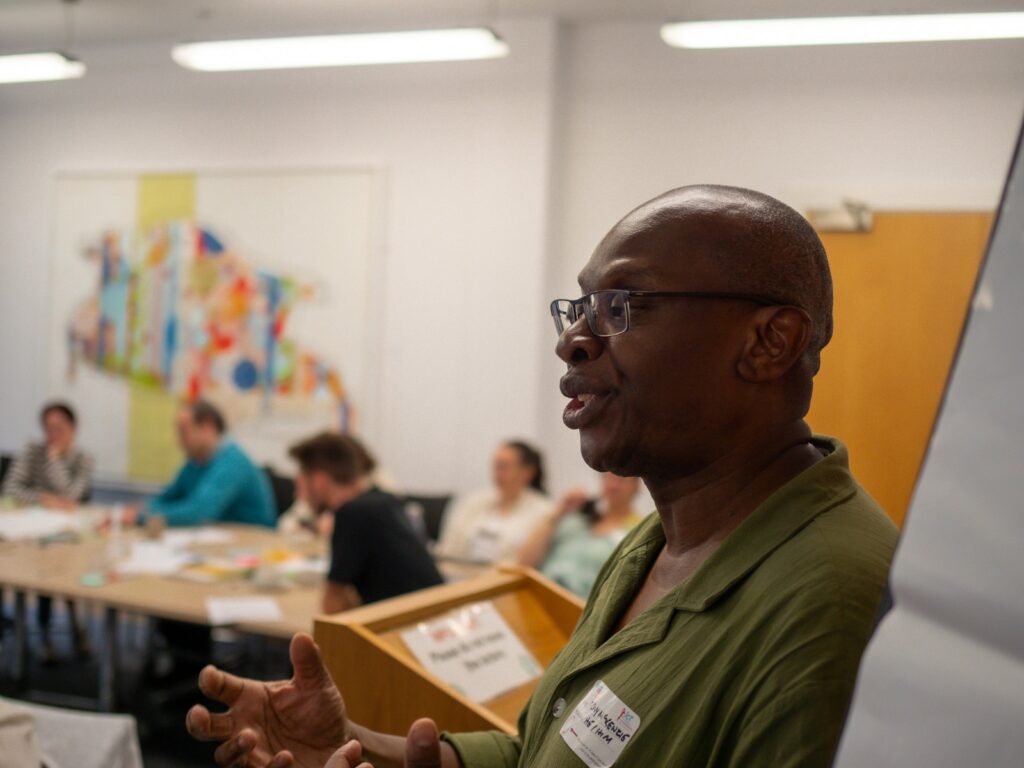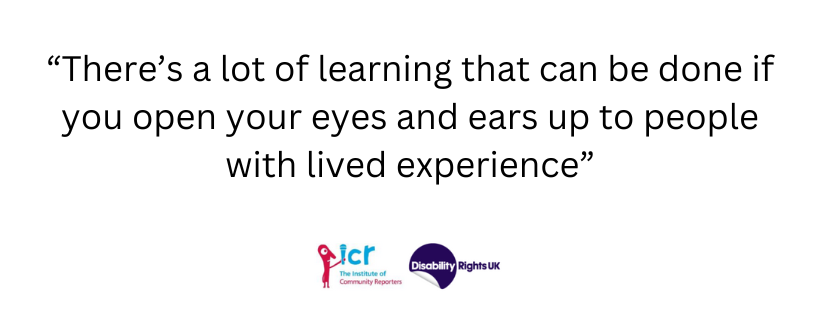CO-PRODUCING A RACIALLY JUST CITY
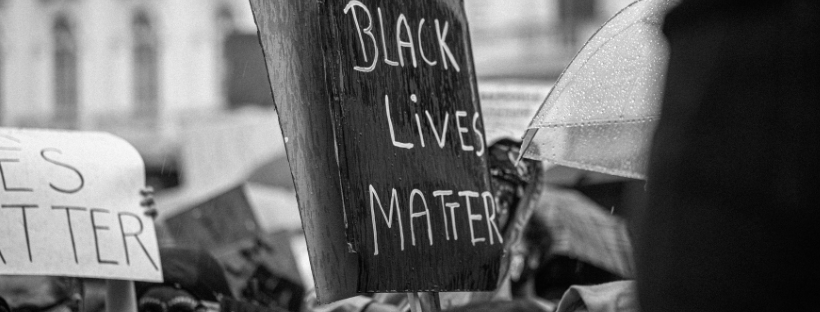
People’s Voice Media recently worked with Dr. Dayo Eseonu from Lancaster University on a research project investigating racial justice and equality that saw us work with racially minoritised young people in South Manchester as part of a 3-day Community Reporting programme. Tony, our facilitator, shares his experiences of the programme…
The participants are young people (13 to 15 years old) who were attending Rekindle’s summer school in Hulme, Manchester. I was tasked with equipping the young people with Community Reporting skills to share their lived experiences about their experience of place from a racial justice and equality lens.
There was so much that resonated with me about this piece of work as it brought up my early years of experience of education and racial injustice. As a part of my preparation, I visited the school’s website and was immediately impressed with the school’s ethos and especially their strapline “The school you wish you’d attended”.
There were some challenges on the project, such as the age range of the group being slightly younger than I had expected and each day having slightly different participants (rather than the same group throughout). However, I adapted the session plan to keep the young people engaged with a variety of participative activities and I was mindful of a conversation that we had previously had at People’s Voice Media, wherein we spoke about giving ourselves the permission to be creative. Technical issues with the recording kit meant that the stories we gathered couldn’t be used as recordings due to sound quality but we were still able to get rich insights from the young people about their experiences of growing-up in the city. They developed skills in interviewing and storytelling, even if the technology failed us!
Working on this project it was important that I created Timothy Clarke’s four stages of psychological safety in order to make it a space in which the young people could share lived experiences connected to racial equality and justice:
- Inclusion Safety: People feel comfortable and wanted in a group.
- Learner Safety: People feel able to ask questions, try things out and make mistakes. (The group did this in bucket loads!)
- Contributor Safety: People feel safe enough to share their own ideas without being embarrassed.
- Challenger Safety: People challenge other group members’ opinions including the group leader’s opinion. Fostering the culture of safety to challenge meant that young people were able to have ‘brave space conversations’ which are more meaningful than safe space conversations.
It is these pillars that enabled us to have so many insightful, challenging, productive and human conversations throughout the three days.
Overall, the sessions were fun, there was a point when one of the young people asked me about my motivation for working with young people and I paused, looked up and another young person was trying to fit an elastic band around his head… I explained that it is moments like these that I relish working with young people.
